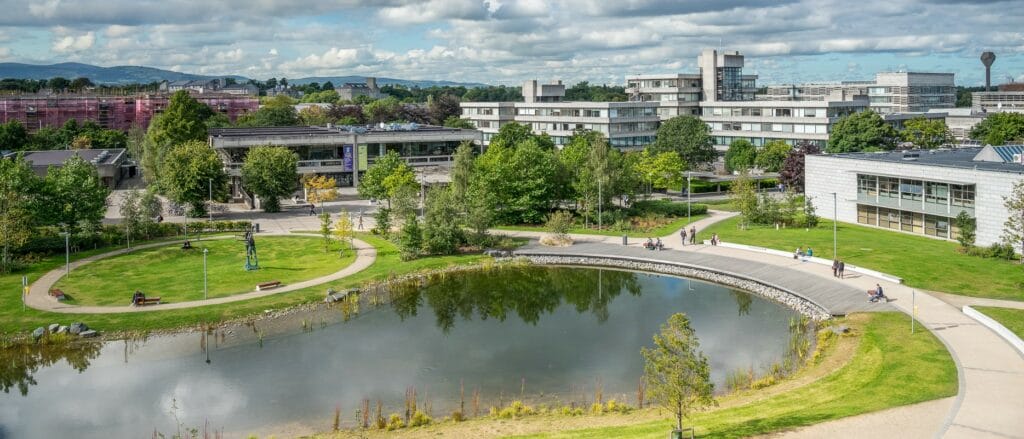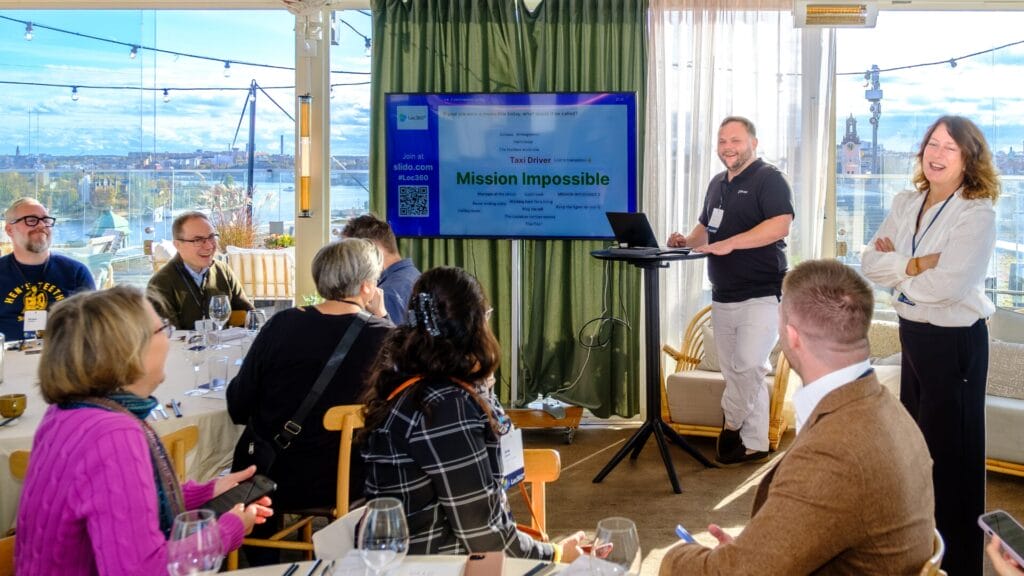LocWorld53 Malmö brought together hundreds of global content, language, and technology leaders for three packed days of conversation, connection, and clarity. Set against the Scandinavian innovation hub of Malmö, the conference set out to track the localization industry’s evolution over the past year, and shine a spotlight on its future.
With dozens of sessions across AI, business strategy, multimedia, and content operations, five major themes stood out from the noise.
At Phrase, we had a notable presence this year, with CEO Georg Ell and our Localization Director Francesca Sorrentino taking the stage, and our wider team joining the conversations happening in hallways and plenary sessions, Phrase’s voice was embedded firmly in this future-facing event.
Here, we’ve gathered five of the biggest trends and topics from this year’s conference:
1. Agentic AI: From concept to implementation
AI has been a talking point for years in the industry, but this year’s sessions marked a shift. The conversation has moved from how AI can assist, to how it’s being implemented, managed and rapidly becoming a central part of most localization teams’ daily work.
This year’s Multilingual AI Roundtable was sold out before the doors opened, reflecting the appetite for discussions on LLMs, Retrieval-Augmented Generation (RAG), workflow orchestration, and auto-QA solutions.

The conference moved beyond static translation to AI-driven localization strategy, exploring what it means to partner with machines effectively. From quality estimation to human-machine collaboration, the emphasis was on integration that works at scale.
Phrase’s Francesca Sorrentino, Localization Director and Sebastian Burns Content Designer, also brought that theory to life. In their session Design-led Localization Workflow: How to Solve the Conundrum of Siloed Teams in Your Content Journey, they shared how our own teams restructured processes to embed localization directly into the content design lifecycle breaking down silos and driving better collaboration from the start.
Using Figma as a shared canvas, the team saved engineering time, fostered cross-functional alignment. They also demonstrated the potential of human-AI collaboration in practice: less friction, better alignment, and a localization practice that starts with design, not delivery.
2. Redefining quality in localization
What does “quality” mean when AI is handling half your volume?
At LocWorld53, several sessions tackled the disconnect between traditional linguistic quality and real-world user impact.
Case studies from Spotify, PayPal, and Peloton explored everything from hallucination prevention in financial services to subtitle QA in fitness content. Speakers examined quality not just as linguistic precision, but as user experience, compliance, and brand impact, particularly in regulated, global, or customer-facing environments.
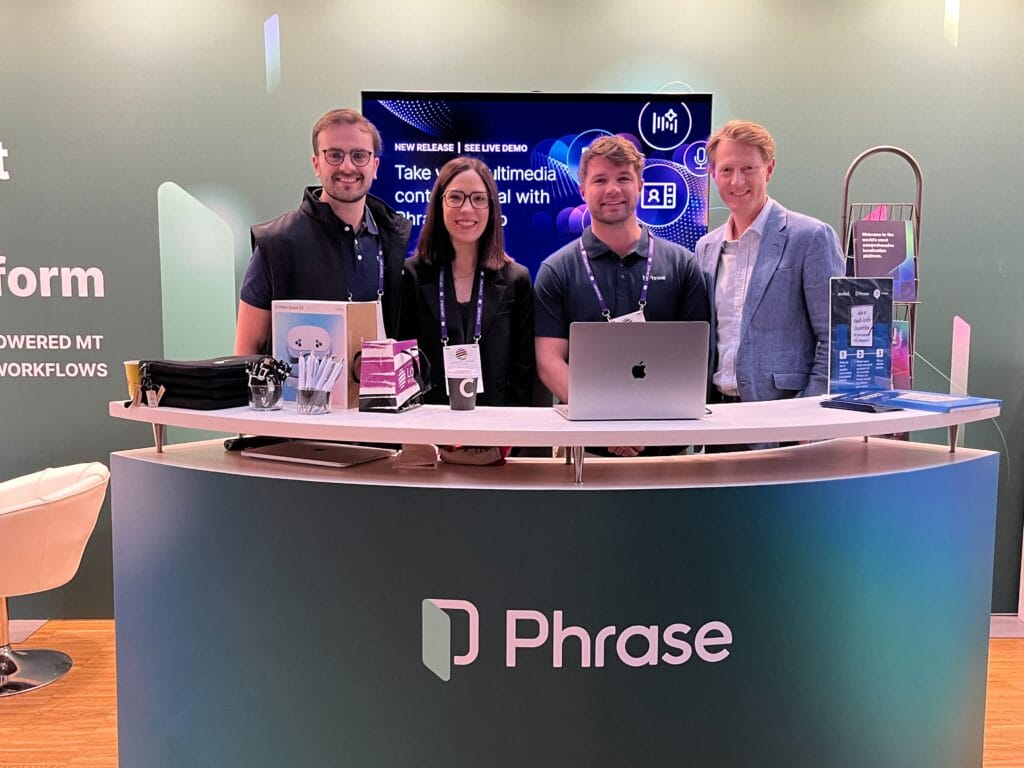
One standout insight came from a panel on translation in financial services: hallucination is no longer a metaphor—it’s a risk. Others pushed for more nuanced KPIs that reflect real-world behavior rather than abstract scores.
The emerging consensus across all these industries appears to be that translation quality is shifting from being a technical metric to a business outcome, and AI needs to be evaluated accordingly. Precision still matters, but cultural resonance and end-user experiencenow define what ‘done’ truly means.
For localization teams, this often means that post-editing is no longer the finish line. It’s one checkpoint in a much bigger quality loop.
3. Localization as a Strategic Business Function
One of the clearest shifts at LocWorld53 was the repositioning of localization teams as strategic orchestrators rather than backend service providers. The idea that localization is just a service team is (finally) losing steam.
In The Future of Localization Starts With You!, Phrase CEO Georg Ell was invited to present a five-minute vision of where the industry is heading, competing live against the other panelists in a format that combined keynote energy with Dragon’s Den urgency.
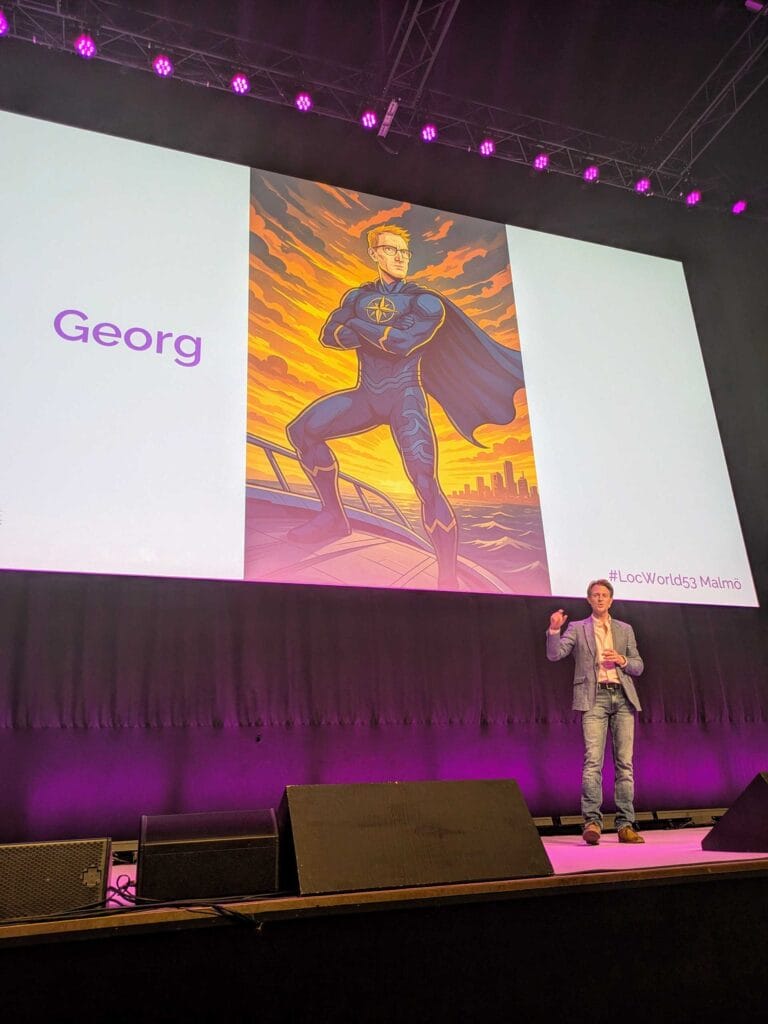
Joining industry voices Olga Stokowiec (Maxon), Kerstin Berns (berns language consulting GmbH), and Jaap Van Der Meer (TAUS), Georg laid out a bold vision: language is infinite work, not finite. Unlike legal compliance or payroll, localization isn’t a box to tick, but a continual effort that creates value through new jobs, use cases, and experiences.
He argued that the traditional content pyramid will invert. Soon, high-stakes content will increasingly be machine-generated, while humans become editors, curators, and strategists.
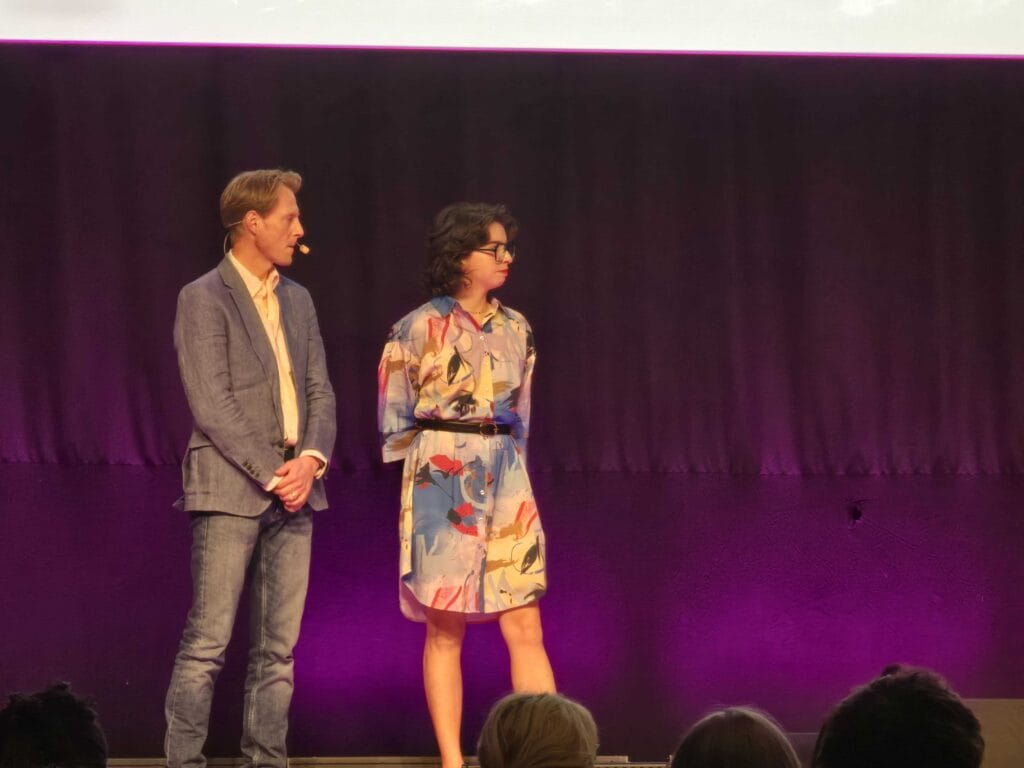
For the language industry, the real opportunity may be in helping companies navigate that shift.
He closed with a quote that caught attention:
“I remembered the line from The Terminator, ‘Come with me if you want to live.’ It’s spoken twice. Once by a human returning from the future to save humanity. Then again, by a machine doing the same thing. That’s where we are. So—come with me if you want to live.”
Georg Ell, CEO, Phrase
The audience responded. After the final voting round, Georg and Maxon’s Olga Stokowiec were crowned co-winners of the session by audience vote. A shared win that perfectly captured the industry’s current balancing act: human expertise, machine acceleration.
Elsewhere, Spotify, Delta, and IKEA shared how their localization teams now influence product design, customer experience, and even go-to-market timelines. As one session put it: “Localization is not downstream anymore—it’s directional.”
4. Operationalizing AI in localization workflows
There was less hype this year. And that’s a good thing.
More talks focused on operational detail. How AI is being embedded, monitored, and improved. Case studies from Asana, Microsoft, and Uber walked through pragmatic implementations: MT pipelines with feedback loops, training data curation, and AI-assisted quality checks.
Other sessions tackled challenges like managing idiomatic language, reducing post-editing effort, and ensuring scalable solutions. As we mentioned earlier, it’s clear that AI is no longer experimental. It’s fully operational and already deeply embedded, but it only works with the right data, the right people, and the right guardrails.
5. Integrating localization with design and data
Finally, one of the most consistent threads: breaking down silos.
Sessions across multiple tracks highlighted the growing overlap between localization, product design, engineering, and analytics.
Many speakers spoke about the idea of global content success as a team sport, and it’s clear that the industry has recently taken strides toward ecosystem thinking. As content creation gets more collaborative and distributed, localization must work in tandem with product, UX, engineering, and data teams.
Sessions explored:
- Metadata localization for global content discovery (Shutterstock)
- Embedding localization in design tools like Figma (Phrase)
- Building shared foundations through terminology, ontology, and AI (Carl Zeiss, Scania)
This reflects a broader industry pivot: localization is no longer about adapting what’s already built. It’s about helping build things right the first time, with global resonance in mind and localization embedded right from the start.
This year, teams are looking to eliminate rework, shorten dev cycles, and align teams that rarely speak the same language (literally or figuratively). Integration appears to have moved from workflow success to cultural shift.
The future is connected
LocWorld53 Malmö built on traditional themes in the industry, with a sharper lens and a more urgent tone, with localization becoming a critical part of business infrastructure. Rather than waiting to be invited to the strategic table, it’s now an industry which shows up (and brings receipts).
Across the agenda, speakers emphasized the role of language professionals not just as translators, but as connectors between cultures, technologies, and business functions. And with leaders from multiple global players showing what’s possible when language and strategy aligned, it’s clear that the next era of localization is already underway.
Because whether you believe the future is led by humans, machines, or a new partnership between the two…
You still have to make the decision to show up.
Phrase Events
Join us at one of our in person events to see first-hand how we’re transforming customer experiences and driving international growth with our latest technologies, innovations and industry insight

